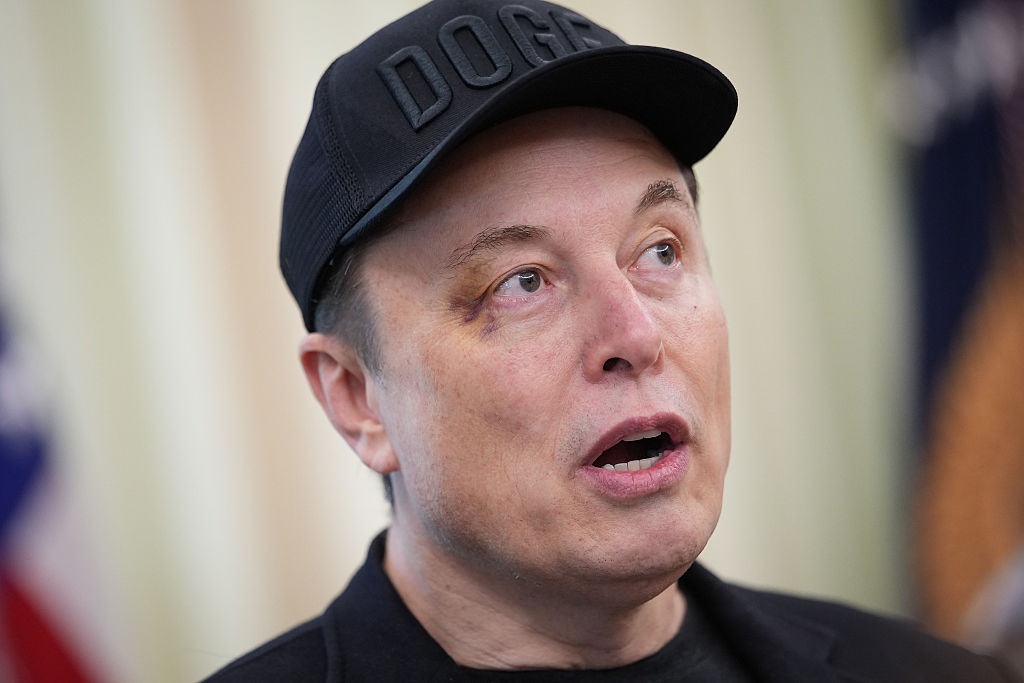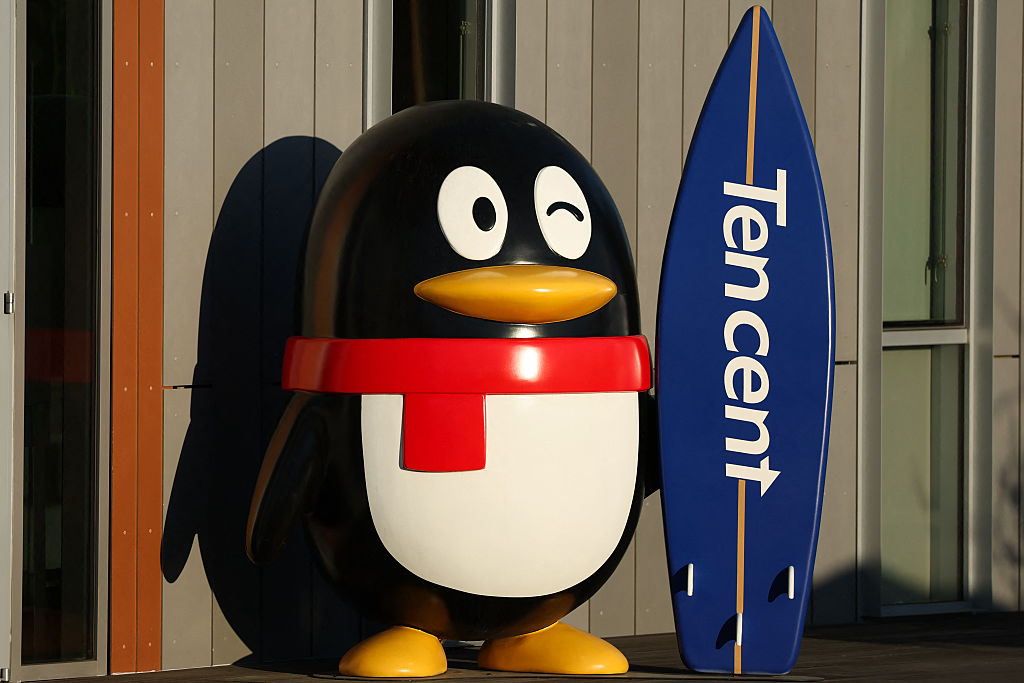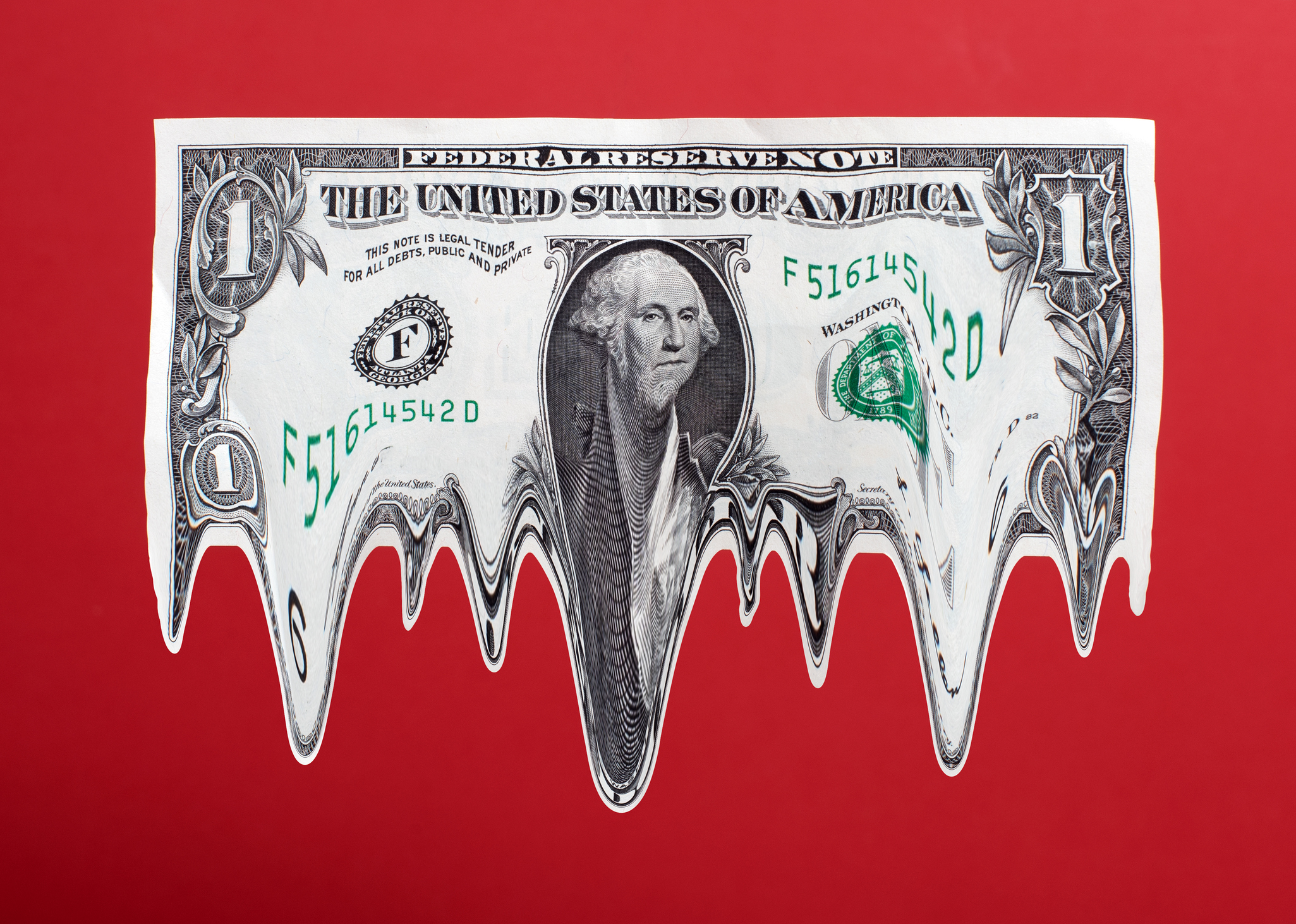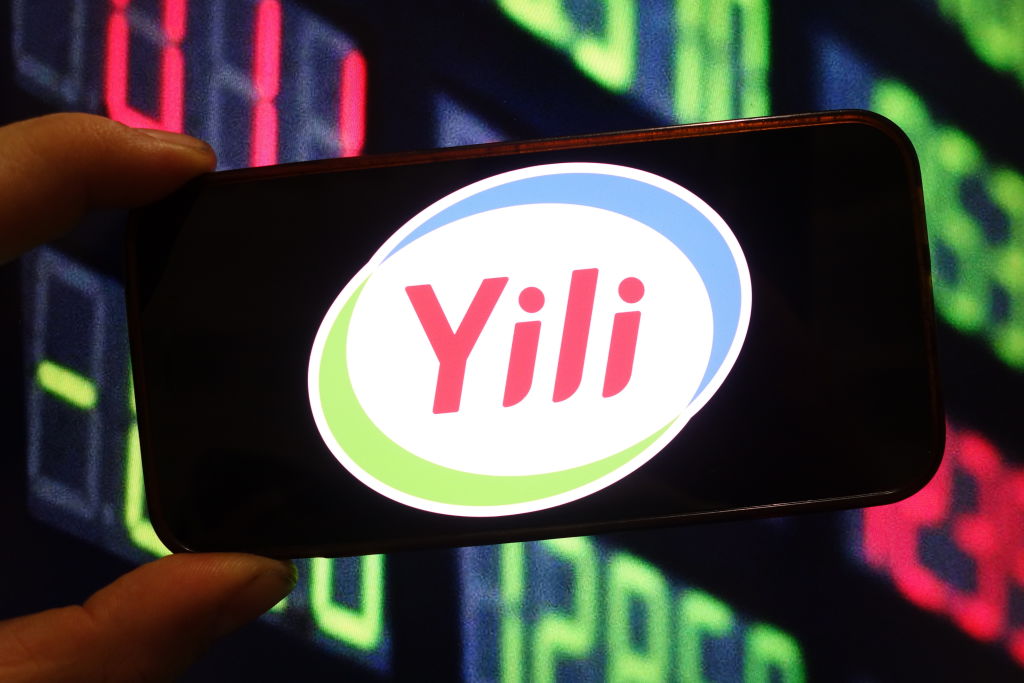Tesla shares slump over Trump/Musk feud
A war of words has sent Tesla shares spiralling to the company’s largest single-day value decline in history


Get the latest financial news, insights and expert analysis from our award-winning MoneyWeek team, to help you understand what really matters when it comes to your finances.
You are now subscribed
Your newsletter sign-up was successful
Want to add more newsletters?

Twice daily
MoneyWeek
Get the latest financial news, insights and expert analysis from our award-winning MoneyWeek team, to help you understand what really matters when it comes to your finances.

Four times a week
Look After My Bills
Sign up to our free money-saving newsletter, filled with the latest news and expert advice to help you find the best tips and deals for managing your bills. Start saving today!
Tesla shares fell 14.3% yesterday (5 June) as CEO Elon Musk entered into a public spat with US president Donald Trump.
The share price slump knocked over $150 billion off the value of Tesla, the largest single-day value decline in the company’s history. While frequently one of the most-bought stocks in the world, Tesla’s shares are facing multiple headwinds, and a feud between Musk and Trump now seems to be one more to add to the list.
Tesla’s share price had been staging a recovery since April. A sorry set of delivery numbers coincided with tariff-driven uncertainty to make the month a nightmare for the company’s shareholders.
MoneyWeek
Subscribe to MoneyWeek today and get your first six magazine issues absolutely FREE

Sign up to Money Morning
Don't miss the latest investment and personal finances news, market analysis, plus money-saving tips with our free twice-daily newsletter
Don't miss the latest investment and personal finances news, market analysis, plus money-saving tips with our free twice-daily newsletter
The latest slump, though, has reversed the nascent recovery. Tesla shares are now down 29.5% since the start of the year, and 40.7% since their all-time high on 17 December.
“Just when Tesla investors were hoping for a period of calm on the global political stage, Elon Musk has started a new war of words,” says Matt Britzman, senior equity analyst at Hargreaves Lansdown. “This time, with the very man he’s been so voraciously backing – president Trump.”
Musk, who last week quit his role working for the Trump government fully, has spent much of this week criticising the bill on X, calling it “a disgusting abomination” and issuing tacit electoral threats to Republicans backing it.
That has swiftly descended into a heated exchange between the two, with Trump claiming that Musk’s main gripe is with the removal of the electric vehicle (EV) mandate, and that “the easiest way to save money in our Budget… is to terminate Elon’s Governmental Subsidies and Contracts”.
Musk responded by suggesting that his rocket launch company SpaceX begin decommissioning its Dragon spacecraft, which NASA uses to take astronauts to the International Space Station. He also posted a claim that the president is included in the Jeffrey Epstein files and that that is why they haven’t yet been made public. He also claimed that Trump’s tariffs will prompt a US recession.
Why has the Trump/Musk feud impacted Tesla’s shares?
Tesla’s share price reached a peak in the weeks and months following Trump’s election victory on a belief that Musk’s proximity to the incoming president would be a huge benefit to Tesla.
It is expected to launch its robotaxi service in Austin, Texas next week (12 June). The primary barrier to wider rollout is thought by many to be regulatory rather than technological; having the ear of the US president, it was believed, would see self-driving Teslas gain approval that much sooner.
This public spat obviously dismantles this theory. Rather than preferential treatment, Tesla now looks in line for whatever wrath president Trump feels he can bring towards it.
“Investors fear that this Musk/Trump battle will stop their friendship and change the regulatory environment for Tesla on the autonomous front over the coming years under the Trump administration,” Dan Ives, global head of technology research at Wedbush Securities wrote in a note seen by MoneyWeek.
“The quickly deteriorating friendship and now "major beef" between Musk and Trump is jaw dropping and a shock to the market and putting major fear for Tesla investors on what is ahead,” he added.
It isn’t just Tesla’s shares that have been impacted. “The feud also weighed on US risk assets more broadly,” says Jim Reid, global head of macro research and thematic strategy at Deutsche Bank. The S&P 500 fell 0.5% yesterday, and ten of its eleven sector groups fell on the day. Other Magnificent Seven stocks like Nvidia and Meta also saw share price declines.
Will the Trump/Musk feud be resolved?
Both Musk and Trump are fiery characters. They are two of the most powerful people in the world, and in some respects it’s not surprising that they’ve fallen out over issues that divide their respective interests.
They are both, though, pragmatists at heart. It could well be the case that the feud is resolved. The White House has scheduled a call between the two today, which Ives hopes will cool the tensions.
“We believe cooler heads will prevail today and into the weekend (hopefully),” said Ives.
Ives wrote yesterday that “this feud does not change our bullish view of Tesla and the autonomous view but clearly does put a fly in the ointment of the Trump regulatory framework going forward.”
A swift resolution would be positive for Tesla’s shares, making the feud just one more volatile patch in this temperamental stock.
“Investing in Tesla isn’t for the faint of heart, and Musk’s enthusiasm for topics close to heart is both a blessing and, at times, a curse,” said Britzman. “For now, markets are willing to look past the weakening auto business with AI and automation the real prizes. But with such a pivotal few months ahead for the autonomous strategy, investors will want to see Musk give his full attention back to Tesla.”
Get the latest financial news, insights and expert analysis from our award-winning MoneyWeek team, to help you understand what really matters when it comes to your finances.

Dan is a financial journalist who, prior to joining MoneyWeek, spent five years writing for OPTO, an investment magazine focused on growth and technology stocks, ETFs and thematic investing.
Before becoming a writer, Dan spent six years working in talent acquisition in the tech sector, including for credit scoring start-up ClearScore where he first developed an interest in personal finance.
Dan studied Social Anthropology and Management at Sidney Sussex College and the Judge Business School, Cambridge University. Outside finance, he also enjoys travel writing, and has edited two published travel books.
-
 Should you buy an active ETF?
Should you buy an active ETF?ETFs are often mischaracterised as passive products, but they can be a convenient way to add active management to your portfolio
-
 Power up your pension before 5 April – easy ways to save before the tax year end
Power up your pension before 5 April – easy ways to save before the tax year endWith the end of the tax year looming, pension savers currently have a window to review and maximise what’s going into their retirement funds – we look at how
-
 Three key winners from the AI boom and beyond
Three key winners from the AI boom and beyondJames Harries of the Trojan Global Income Fund picks three promising stocks that transcend the hype of the AI boom
-
 'AI is the real deal – it will change our world in more ways than we can imagine'
'AI is the real deal – it will change our world in more ways than we can imagine'Interview Rob Arnott of Research Affiliates talks to Andrew Van Sickle about the AI bubble, the impact of tariffs on inflation and the outlook for gold and China
-
 Three promising emerging-market stocks to diversify your portfolio
Three promising emerging-market stocks to diversify your portfolioOpinion Omar Negyal, portfolio manager, JPMorgan Global Emerging Markets Income Trust, highlights three emerging-market stocks where he’d put his money
-
 New year, same market forecasts
New year, same market forecastsForecasts from banks and brokers are as bullish as ever this year, but there is less conviction about the US, says Cris Sholto Heaton
-
 How to profit from the UK leisure sector in 2026
How to profit from the UK leisure sector in 2026The UK leisure sector had a straitened few years but now have cash in the bank and are ready to splurge. The sector is best placed to profit
-
 Metals and AI power emerging markets
Metals and AI power emerging marketsThis year’s big emerging market winners have tended to offer exposure to one of 2025’s two winning trends – AI-focused tech and the global metals rally
-
 Quality emerging market companies with consistent returns
Quality emerging market companies with consistent returnsOpinion Mark Hammonds, portfolio manager at Guinness Global Investors, selects three emerging market stocks where he'd put his money
-
 Coreweave is on borrowed time
Coreweave is on borrowed timeAI infrastructure firm Coreweave is heading for trouble and is absurdly pricey, says Matthew Partridge